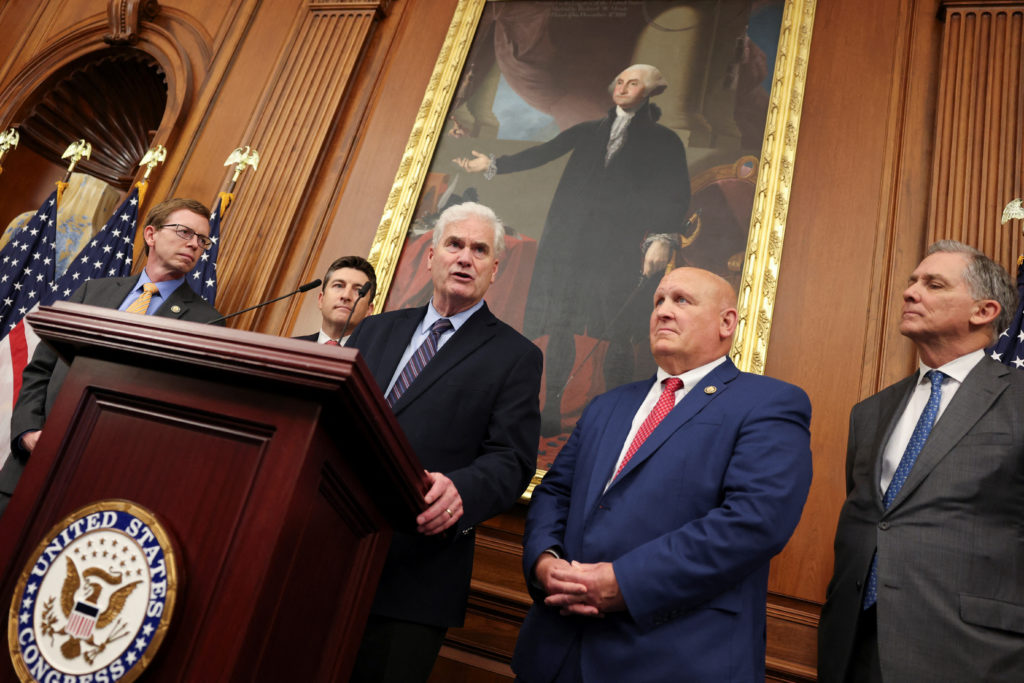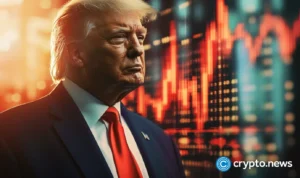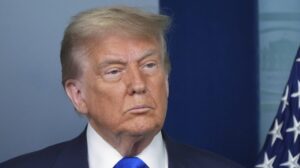House Republicans Celebrate Passage of Key Cryptocurrency Bills

U.S. House Advances Cryptocurrency Legislation Amid Trump’s Push for Industry Growth
New Bills Aim to Regulate Cryptocurrency Market
The U.S. House of Representatives has successfully passed three significant pieces of legislation aimed at enhancing the credibility of the cryptocurrency sector. This legislative move aligns with President Donald Trump’s ambition to position the United States as the leading hub for cryptocurrency.
- New Bills Aim to Regulate Cryptocurrency Market
- Stablecoin Bill Receives Bipartisan Support
- Legislative Journey and Internal Disagreements
- Implications for the Cryptocurrency Market
- Broader Market Structure Legislation
- Opposition to Central Bank Digital Currency
- Concerns Over Regulatory Weakness
- Conclusion: A Pivotal Moment for Cryptocurrency
Stablecoin Bill Receives Bipartisan Support
Among the three bills, one focuses on regulating stablecoins—a type of cryptocurrency pegged to stable assets like the U.S. dollar. This bill, which garnered substantial bipartisan backing in the Senate earlier, is now set to be sent to President Trump for approval. The House approved it with a vote of 308-122, establishing initial consumer protections and regulatory frameworks for stablecoin issuers.
House Financial Services Chair French Hill emphasized the importance of the legislation, stating it would bolster American competitiveness and provide essential safeguards for consumers.
Legislative Journey and Internal Disagreements
Despite the enthusiasm surrounding the bills, their passage faced delays due to internal disagreements among House Republicans regarding their combination. Ultimately, GOP leaders opted for separate votes, leaving the future of the other two bills uncertain in the Senate. This internal conflict may signal potential hurdles for the broader cryptocurrency legislation that Trump has advocated for, especially as the industry has invested heavily in lobbying efforts.
Implications for the Cryptocurrency Market
The stablecoin legislation is viewed as a pivotal step toward legitimizing the rapidly expanding cryptocurrency market. Treasury Secretary Scott Bessent previously noted that this regulatory framework could help the market grow to an estimated $3.7 trillion by the decade’s end. The bill mandates that stablecoin issuers comply with U.S. anti-money laundering laws and maintain reserves to back their cryptocurrencies, addressing concerns about consumer risks associated with unstable reserves.
Broader Market Structure Legislation
Following the stablecoin bill, House Republicans urged the Senate to consider a second piece of legislation aimed at establishing a comprehensive market structure for cryptocurrencies. This bill, which passed with a vote of 294-134, seeks to clarify how various digital assets should be regulated, distinguishing between commodities and securities. Generally, cryptocurrencies linked to established blockchains, such as Bitcoin, would be classified as commodities.
Opposition to Central Bank Digital Currency
The third bill, which narrowly passed with a 219-210 vote, prohibits the U.S. from introducing a central bank digital currency, a government-backed form of digital cash. This legislation has been a priority for the cryptocurrency industry, which has expressed frustration over the lack of clear regulations in the U.S. and the Biden administration’s reliance on enforcement actions rather than transparent rulemaking.
Concerns Over Regulatory Weakness
While the bills have received significant bipartisan support, they have also faced criticism from some Democrats. Concerns have been raised regarding the potential for these regulations to benefit Trump’s financial interests in the cryptocurrency space. Notably, a provision in the stablecoin bill prohibits members of Congress and their families from profiting off stablecoins, but this restriction does not extend to the president and his family.
Critics, including Massachusetts Senator Elizabeth Warren, argue that the legislation could create a weak regulatory environment, potentially allowing major corporations to issue their own cryptocurrencies.
Conclusion: A Pivotal Moment for Cryptocurrency
The passage of these bills marks a significant milestone in the ongoing evolution of cryptocurrency in the U.S. Advocates believe that these legislative efforts could pave the way for mainstream adoption of digital assets, drawing parallels to the transformative securities laws enacted in the 1930s. As the cryptocurrency landscape continues to develop, the implications of this legislation will be closely monitored by industry stakeholders and lawmakers alike.







